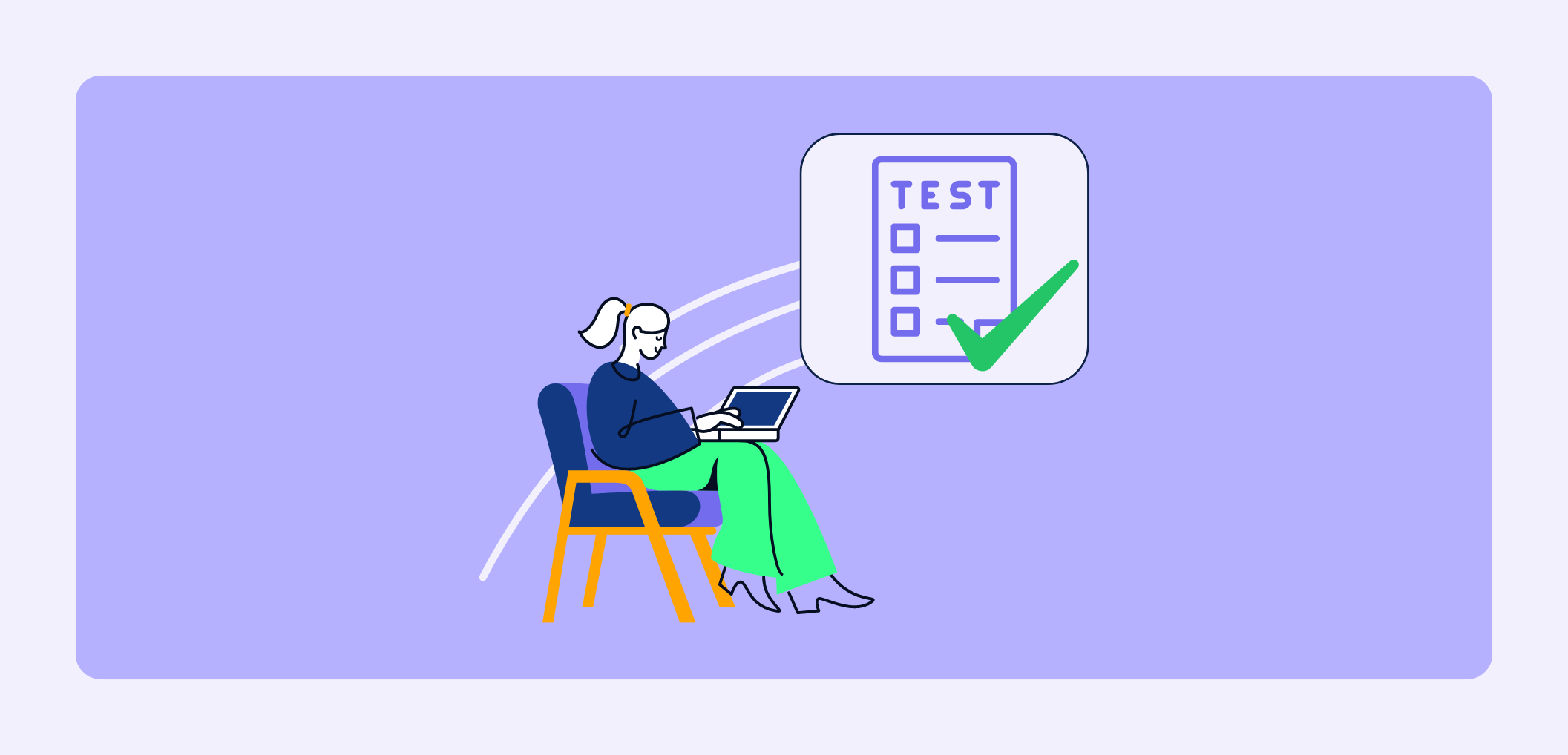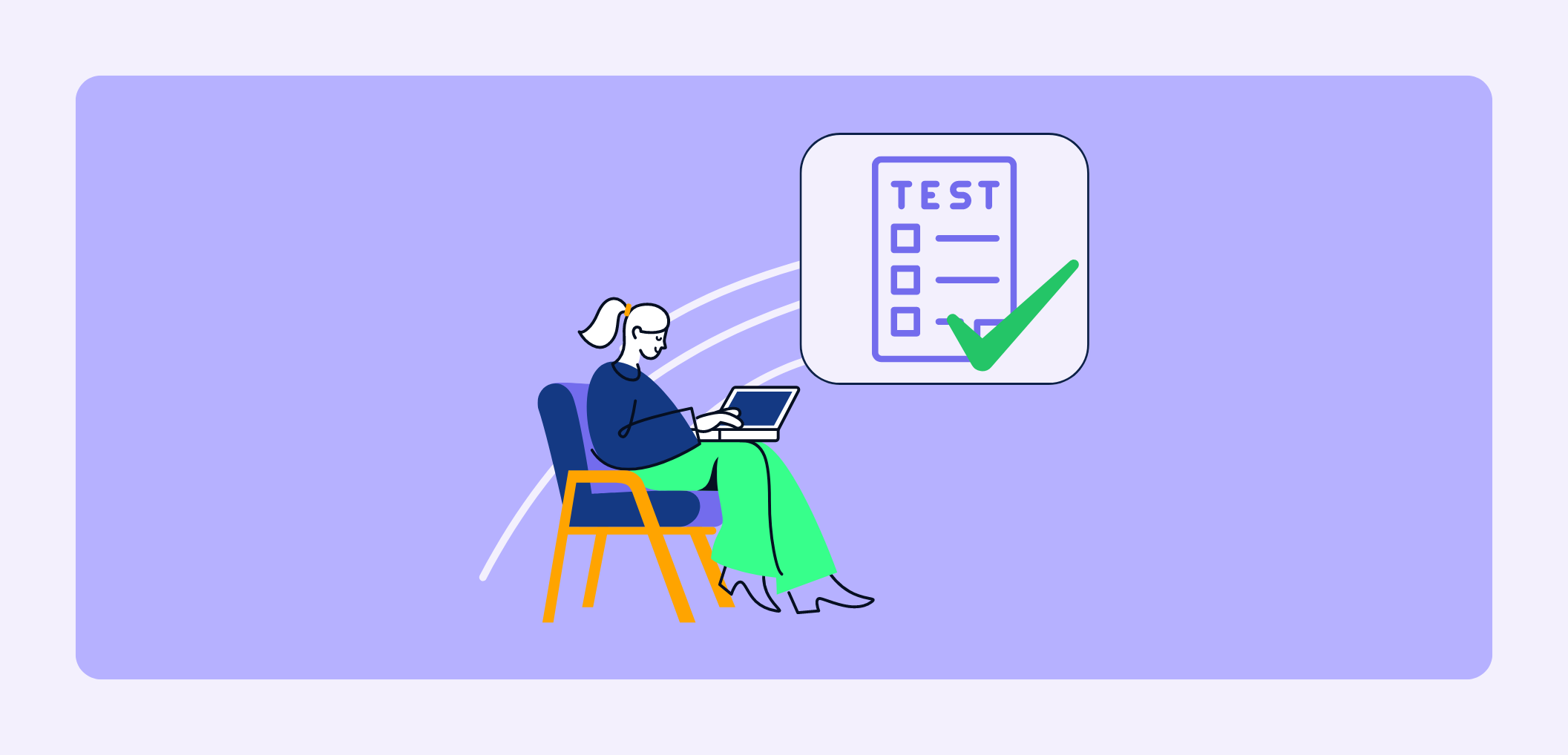Pymetrics Online Games Assessment is a new form for large companies and consulting firms to assessand filter their candidates. It includes game-based elements to test specific personality traits or skills. The following article will give you an overview on the background of this type of assessment and how to prepare for the test.


Pass the Pymetrics Online Games Assessment with our Tips!
Who Are Pymetrics?
Pymetrics is a company that provides talent screening products to hiring companies including online assessments and interview technology products. Founded in 2013 by two PhDs from Harvard and MIT, Pymetrics combines neuroscience and machine learning to identify high-performing candidates using engaging, games-based assessments.
Based in the US, Pymetrics works with some of the world’s largest employers to create fair and unbiased assessments. These games are designed to evaluate candidate personality traits, making it easier for companies to manage large pools of applicants and identify the best fit for their needs. They provide the technology and present the results, but they do not influence the hiring decisions or the assessment of the results. This ensures that the hiring process remains unbiased and transparent.
Pymetrics offers not just online assessments but also advanced interview technology products, making the hiring process smoother and more efficient for both employers and candidates. By leveraging their unique combination of neuroscience and machine learning, Pymetrics has revolutionized the way companies screen and select talent.
Why Companies Have Adopted Games Based Assessments
The Boston Consulting Group, McKinsey, PwC, McDonald's, Cisco, Coca-Cola, and Kantar have all introduced a game element to their application process in the last couple of years and it is a trend expected to continue.
For large graduate employers that receive thousands of applications per year, there is always a difficult process of reducing the applicant pool in a fair and unbiased way. Employers do not want to filter out good candidates, as good talent is critical to all of these businesses. Filtering out candidates purely based on academic backgrounds is not a fair and accurate way of reducing the candidate pool. Academic grades do not take into account contributing factors such as social backgrounds, demographics, wider work experience, and extra-curricular activities that all influence personality traits.
There is also strong evidence that a diverse workforce achieves higher results and that unconscious bias has a negative influence on hiring decisions. The games-based assessment prides itself on being a method of candidate filtering that is free from bias and totally objective.
What to Expect From Pymetrics Games?
Pymetrics games involve a variety of tasks designed to assess different skills. For instance, you might see sequences of shapes in varying sizes and colors and need to tap the screen when specific ones appear. Other tasks could include rearranging pieces to match a pattern in the fewest moves or recognizing emotions from a cartoon character's facial expression and context. You also may need to identify pattern irregularities and tap the screen when they occur, or recall sequences of shapes and numbers after they've been displayed one by one.
In general, Pymetrics games are set up similarly across implementations, designed to assess traits like risk-taking and emotional recognition. However, firms might customize the experience to align with their specific needs or culture. While the core games remain consistent, the presentation and integration can vary slightly.
Pymetrics Games Examples
Pymetrics games vary in the tasks they require candidates to complete. Let’s have a look at some specific examples of these games and see how they measure traits like risk-taking, problem-solving, emotion recognition, attention, and impulse control.
- Balloon Game: This game assesses risk-taking behavior. Players pump up a virtual balloon to earn money but must decide when to stop pumping to avoid the balloon bursting.
- Face Game: This game evaluates emotional recognition. Players identify the emotions displayed by faces, which helps to understand how well they recognize and respond to others' feelings.
- Cards Game: This game shows the attention and learning-abilities of the players. They choose cards from different decks to maximize their virtual money, requiring them to learn which decks are advantageous and which are not.
- Arrows Game: This game measures cognitive control and attention. Players must indicate the direction of a central arrow while ignoring distracting arrows around it, testing their ability to focus and process information quickly.
- Money Exchange Game: This game measures trust and cooperation. Players are involved in a virtual economic transaction where they must decide how much money to share with another player.
Look and Feel of the Pymetrics Games
The Pymetrics test can be taken on a smartphone or desktop and has a similar feel to many other brainteaser apps. Using simple buttons or timely taps on the screen, you can complete all of the games.
The Pymetrics games can generate the same sense of pressure and anxiousness as a numerical reasoning assessment because the scenarios are new, there is some maths required and a time pressure element is included.
However, the games are very intuitive and you do not need to worry about not being able to understand them or not being able to navigate the app. It is very easy and as long as you have a smartphone and are comfortable downloading and opening an app, you will be able to complete the assessment of the pymetrics game.
Important Traits Pymetrics Are Testing
Understanding Pymetrics Assessments
Personality Traits
Pymetrics uses a series of interactive games to evaluate candidates across nine key personality traits. These traits are assessed through a set of 12 games, which are designed to reveal various aspects of a candidate’s personality and cognitive abilities. The nine personality traits evaluated include:
- Attention
- Effort
- Fairness
- Decision-making
- Emotion
- Focus
- Generosity
- Learning
- Risk Tolerance
Each of these traits is not tested by a single game but is inferred from multiple games. The games are designed to capture a range of behaviors and responses that collectively provide a comprehensive picture of the candidate’s personality.
Technical Skills
In addition to the personality assessment, Pymetrics offers a separate set of games focused on technical skills. These four additional games are aimed at evaluating:
- Quantitative Reasoning
- Numerical Reasoning
These technical skill games are distinct from the personality games and focus specifically on assessing abilities related to numerical and analytical tasks.
How It Works
Pymetrics does not map individual games directly to specific traits or skills. Instead, it analyzes the results from multiple games to build a holistic profile of the candidate. This approach allows for a nuanced understanding of both personality traits and technical skills, helping organizations make more informed decisions.
Why Are the Traits Tested in Pymetrics Important in Consulting?
The traits the Pymetrics Games test have different values for different companies as factors such as industry, company size, culture, etc. all influence what a hiring company values in their graduates.
As an example, we have considered these traits from the view of the Boston Consulting Group (BCG). BCG is a top strategy consulting firm and is a proud, high-performing analyzer that works regularly with external clients. This drives a lot of what they value and what they perceive as ‘ideal’ on each of the tested attributes.
- Attention: Consultants charge high fees to their clients and therefore expect an equally high-quality standard of work. All work must therefore be error-free no matter how complex the topic or task and great attention to detail is required.
- Effort: Along with high salaries for employees, consultants also expect long hours and high output. This makes effort a key requirement of all consultants.
- Fairness: In consulting, there is a strong sense of collaboration in the office as acquired knowledge is what makes them a valuable service and so being able to support others and be fair to colleagues and clients alike is important.
- Decision-Making: Even the junior consultants in strategy consulting firms have large amounts of autonomy and must make many decisions to maintain the momentum of work.
- Emotion: A client-facing industry consultant needs to have high levels of both EQ and IQ. The client is less likely to engage if they are frustrated or disappointed but they will not always tell you explicitly and so it is up to the consultant to read their emotions and anticipate the actions required to improve the outcome for the client.
- Focus: With lots of moving parts to a project and the seniority of many clients, keeping up can be hard. Maintaining focus after a long day or after traveling is key to ensuring a good understanding of what is required.
- Generosity: Getting along well with colleagues and clients is crucial for any consultant, and being generous is a great way to do this. Simple acts like going out of your way to help someone or giving your time can make a big difference in building good relationships.
- Learning: There is a joke amongst consultants that it only takes one project to be an expert and whilst that is not true and doesn’t help the consultant stereotype of thinking they know a lot but in actual fact knowing very little, it does indicate the immense ability to learn as a consultant. In a matter of days, you can be required to discuss a business’s industry pressures with the CEO or present a technical topic to the client so being able to learn fast is critical.
- Risk Tolerance: With fast-moving projects and stretched resources, you will be required to make some decisions yourself from day one. Naturally, there will be a level of risk to some of these decisions from the quality of work to legal exposure and so having a good sense of judgment is valuable.
- Quantitative Reasoning: The majority of strategy consultant work involves presenting data and graphs and all junior consultants will be expected to be able to digest, manipulate and explain many quantitative components to their colleagues and clients.
- Numerical Agility: When conducting quantitative analysis it is common for management or the client to change their mind on the metrics or lens they want to use when looking at the data, so the ability to adapt and take alternative approaches is key.
Please note that the importance and weighting of these traits would be different for manufacturers such as Airbus, auditors such as KPMG, and marketing agencies such as WPP.
How to Pass the Pymetrics Assessment Test
Pymetrics like to state there is no right or wrong answer in the games. There is some truth to that statement as it does vary between companies. However, there is a threshold you need to meet in order to progress to the next stage of the application so there has to be a certain level of right answers or a combination of answers you need to achieve.
It helps to understand how the games are calibrated from company to company.
To assess a candidate's suitability, their cognitive, emotional, and social traits are used to create a success profile. This profile is then compared to a benchmark score based on the traits of high-performing employees within the organization.
This group of employees plays the games and the average is taken across the different personality traits. This becomes the ‘ideal’ answer for the hiring company as it works on the principle that they want to hire more of these types of people.
When you complete the games as part of your assessment, your score will be assessed against the ‘ideal’ answer and your distance away will determine your score and whether you progress to the next stage of the case interview process.
Therefore, there are two ways to approach the games but only one we would recommend:
- Try and guess how the current employee sample approached the games and try and replicate their responses.
- Be yourself, answer the games as best you can and if that fits with what they consider a high performer then you will pass.
We suggest going with option 2 because being genuine helps reveal your true traits. If your results match those of current employees, it means you’re likely a good fit for the company. This is important, as a poor fit could lead to job dissatisfaction and a shorter stay.
Still, it can be helpful to prepare for the tests and know what to expect. This helps you relax and handle certain situations and tasks more confidently. Use our materials and resources to get ready for a successful start in a consulting career!
👉 McKinsey Solve Game Simulation Package
👉 BCG Online Case Combo: Software Simulation


To help you take the Pymetrics games, we recommend these top tips to ensure you are focused and as well-prepared as you can be:
- Understand the Assessment Format: To effectively prepare for the Pymetrics Games assessment, start by familiarizing yourself with the game format and tasks. Research the types of games you’ll encounter and learn about the specific traits they assess, such as attention, risk tolerance, and emotional recognition. This understanding will help you approach the assessment with confidence and clarity, knowing what to expect and how to perform well in each game.
- Create a Quiet Environment: It takes under 30 minutes to complete the whole assessment but it moves at a fast pace with time pressure in each game. Having zero distractions is a big help and ensures you make a good account of yourself.
- Complete the Test in the Morning: The Pymetrics games require a lot of concentration and focus so by taking them in the morning you make sure that you’ve got your full brain capacity when completing them.
- Practice With Resources: As mentioned earlier, it’s important to thoroughly prepare for the Pymetrics Games. You can use our tests and guides for this. Additionally, we recommend working on your general skills with tools like our Mental Math Tool or Brainteaser. We also offer quizzes and a range of other engaging materials and articles to further advance your consulting career.
For any further questions, feel free to ask on our Consulting Q&A. You can browse other threads concerning the pymetrics games:
👉 Bain/BCG Pymetrics Test: How to Prepare?
👉 Pymetrics test: Altruism
👉 McKinsey game
Conclusion
In summary, Pymetrics assessments use interactive games to evaluate a range of personality traits and technical skills, helping companies find the best candidates. By understanding how these tests work and preparing effectively, you can increase your chances of success in this modern hiring process.
As Pymetrics continues to gain popularity in recruitment, being well-prepared for these assessments can give you a significant advantage. With the right preparation, you'll be well-equipped to impress potential employers and advance in your consulting career.
Good luck with the test!
Continue to Learn





